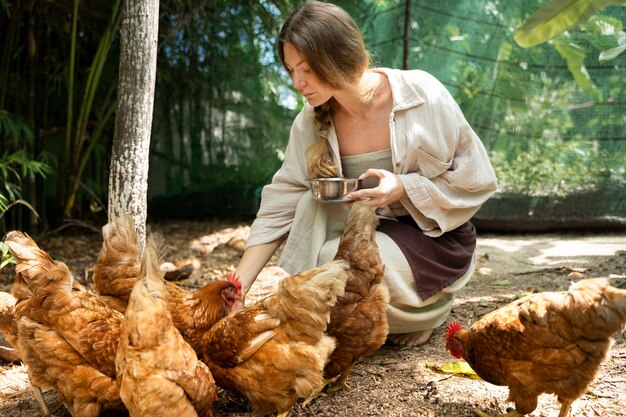
Sponsored article
As global demand for poultry products continues to rise, ensuring optimum nutrition and health in poultry farming becomes increasingly critical. Innovative approaches to enhancing bird nutrition and well-being are not only crucial for improving productivity but also for promoting sustainable and ethical practices within the industry. This article delves into cutting-edge advancements and techniques that are reshaping how poultry nutrition and health are addressed in modern agriculture.
Innovation in poultry nutrition is pivotal for advancing sustainable practices, with emerging novel feed ingredients and alternative protein sources playing a significant role. These innovative solutions include insect meal, algae-based products, and single-cell proteins, which are gaining attention for their nutritional benefits and lower environmental impact compared to traditional feed ingredients. Insect meal is rich in essential amino acids and fats, making it an excellent alternative protein source for poultry. Algae-based ingredients provide essential fatty acids and other bioactive compounds that enhance poultry health and productivity. As these novel ingredients are integrated into poultry diets, they open new avenues for more efficient and sustainable feeding strategies. By optimizing nutrient utilization and reducing the ecological footprint of poultry production, such sustainable poultry feed management strategies offer a promising path toward more resilient and environmentally friendly agriculture.
The poultry microbiome plays a critical role in maintaining gut health and supporting overall poultry disease prevention. A diverse and balanced microbiome acts as a crucial barrier against pathogens, reducing the risk of infections and promoting the well-being of poultry. Innovative approaches to enhancing poultry nutrition and health increasingly focus on cultivating a healthy microbiome. Probiotics and prebiotics are integral tools in this endeavor, fostering a thriving gut environment. Probiotics, which comprise beneficial bacteria, help sustain a harmonious microbial community that can outcompete harmful pathogens. Prebiotics, on the other hand, are non-digestible food ingredients that fuel the growth of beneficial microorganisms. Together, these supplements can significantly enhance gut health by promoting a robust and resilient poultry microbiome. As a result, the integration of probiotics and prebiotics not only boosts disease resistance but also improves feed efficiency and productivity, underscoring their value in sustainable poultry farming practices.
In the realm of poultry health management, cutting-edge technology plays a pivotal role in enhancing both nutrition and wellbeing of poultry flocks. The integration of digital tools and precision farming techniques has revolutionized poultry health monitoring, enabling farmers to gather real-time health data that informs proactive intervention strategies. Smart sensors and IoT devices collect critical information such as temperature, humidity, and bird activity levels, providing insights into the birds’ environment and physiological status. These innovations allow poultry producers to swiftly identify potential health issues, ensuring timely and effective responses that maintain optimal flock health. In addition, precision farming approaches such as automated feeding systems use data analytics to tailor nutrition plans according to specific needs, maximizing growth and immunity. By leveraging advanced digital tools, farmers can achieve more efficient resource use, reduced animal stress, and improved overall productivity, marking a significant advancement in sustainable poultry health management practices.